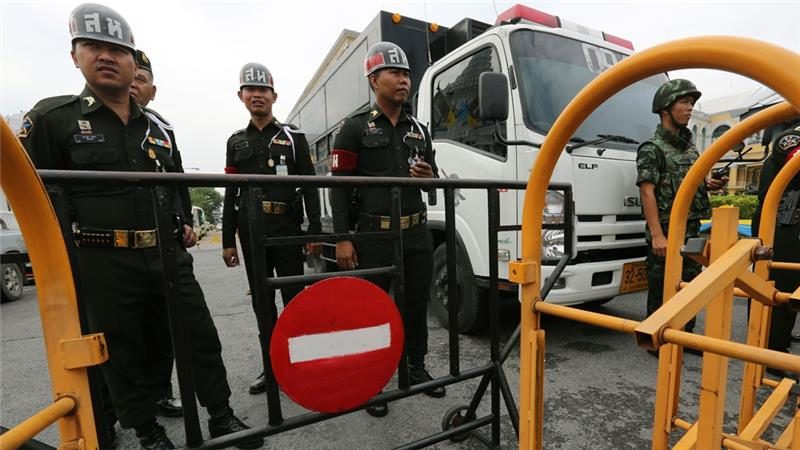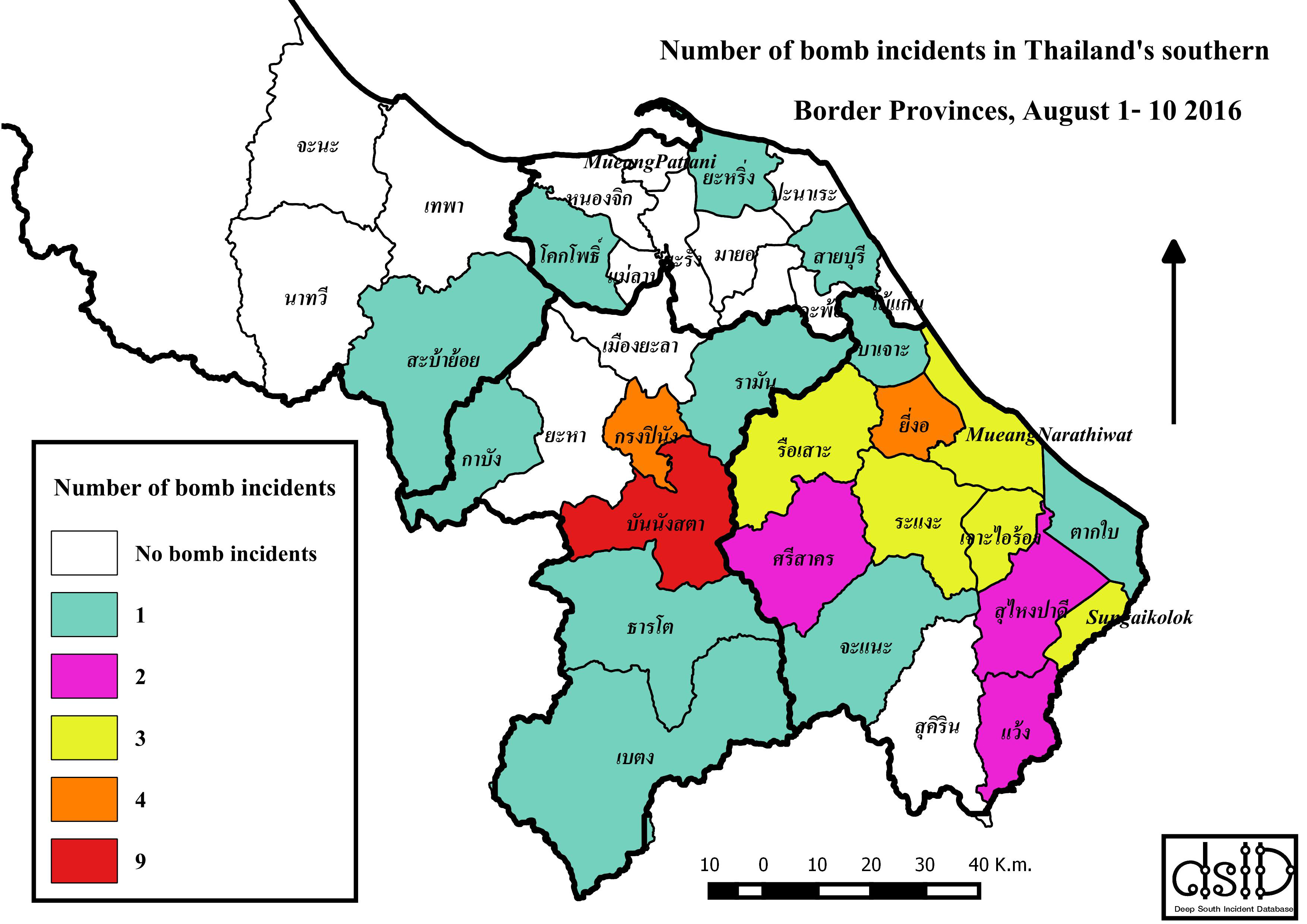Truth shouldn’t also be a casualty after Thailand’s 10-12 August bombings.
It is no surprise that Thai authorities go out of their way to rule out Malay-Muslim separatists as potential perpetrators of the string of bombs in the upper south on 10-12 August. It is after all what they always do.
It is more surprising that several experts make similar claims based on myths about the southern Thai conflict, while disregarding equally important facts about recent events in the border provinces.
Fact: southern militants launched a sustained bombing campaign timed to the referendum.
The first 10 days of August saw 50 bomb attacks in the southern border provinces. To make it clear that the violence was related to the 7 August referendum, the insurgents also sprayed anti-constitution graffiti in 18 locations.
This might have helped to sway public opinion in the south against the constitution and contributing to voters in Pattani, Yala and Narathiwat rejecting the draft referendum.
Source: Deep South Incident Database.
While southern militants were busy placing an average of five bombs a day, no other anti-government groups resorted to violence during this period. This should make the southern militants key suspects if the August 10-12 bombings in the upper south is indeed related to the passing of the junta backed constitution.
Myth: Southern militants don’t target tourists.
Contrary to common claims, the southern insurgents have a history of directly targeting tourists. High profile events include the bomb at Lee Garden hotel in Hat Yai killing several foreigners and injuring more than 400, an earlier bomb at Hat Yai airport, the bomb at the central shopping mall on Koh Samui in April last year, and numerous bombs against entertainment venues frequented by Malaysian tourists in the seedy border towns Sungai Kolok, Sadao and Betong.
Myth: Southern militants don’t act outside the southern border provinces.
In addition to the Koh Samui blast last year, two bombs in 2013 was linked to southern separatist groups. First the bombing in front of Ramkhamhaeng University in Bangkok in May and then a foiled car bomb at a the Phuket Town police station at the end of the year.
While it is true that the vast majority of the violence has been concentrated to the southern border provinces, the separatist groups do not lack capacity to carry out bombings in tourist areas in the upper south.
Southern Thailand was rocked by a total of 63 bombs during 1-13 August. Focusing only on the 13 explosives targeting the upper south during the latter part of the period, while disregarding the 50 events in the southernmost border provinces, clearly plays into the hands of Thai authorities.
At this point there is no conclusive evidence pointing to a single group behind recent bombs in the upper south. Thai authorities have mobilised the full force of their propaganda machinery to convince their citizens and the international community that southern separatist groups had nothing to do with the bombs targeting foreign tourists.
The role of analysts and researchers should be to question the official line and not to repeat baseless claims about the character of the southern insurgency.
Anders Engvall is a research fellow at Stockholm School of Economics and research advisor to the Deep South Incident Database at Deep South Watch in Pattani, Thailand.
 Facebook
Facebook  Twitter
Twitter  Soundcloud
Soundcloud  Youtube
Youtube  Rss
Rss 
